Introduction
The change in future demographics, technology, and environment will result in opportunities for both individual, community, and work sectors to be empowered for food security and sovereignty. The underlying hypothesis is that future urban food production becomes the potential social equaliser and becomes an attractive job sector that ensures both Singapore’s food security and sovereignty. In an controlled manner, the architecture and urban infrastructure can both support urban food production and ensures community welfare.
Hope
The thesis seeks to re-imagine the possibilities of public housing with a holistic approach towards food, energy, health, and well-being. Rationales based on the circular economy concept where waste is a resource, the proposal reinterpret urban food production logistics as a close loop system with food clusters requires food cultivation spaces (functional) and food sharing spaces (community) for the future food industry and urban communities. The Thesis imagines an intensive productive and living district, interweaving loops of food, community spaces, energy generation spaces and micro farms create an environment that facilitates a paradigm shift in our concept of daily living – with food production, job opportunities, learning and physical activities from home.
To incorporate mariculture as an urban ecological strategy and food source, an undulated seawall with tidal terrains is applied as a modified coastal defense line that both protects the offshore communities from rising sea level and provides a productive interface for marine-life cultivation.
A continuous line of coastal defense stretching from Marina Barrage to Changi Airport protects the newly expanded offshore communities and the inland area of Singapore.
Conclusion
Food should not be regarded as the product; instead, food should be reinstated to our local governance. The creation, storage, and distribution of food resources through urban dwellers’ participation informs us a more responsible understanding of the current supply chain, provides job opportunities, cultivates a healthier food habit, and enhances food sovereignty. This hypothesis drives the development of my thesis motivation and strategies. The project speculates on the future impacts on Singapore’s food security and sovereignty and questions Singapore’s role by being the vested interest benefits of the current food system. Further anticipation of the goal is that urban food production becomes the main component of Singapore’s economy, advocating a unique cultural, ecological, and economic sustainability.
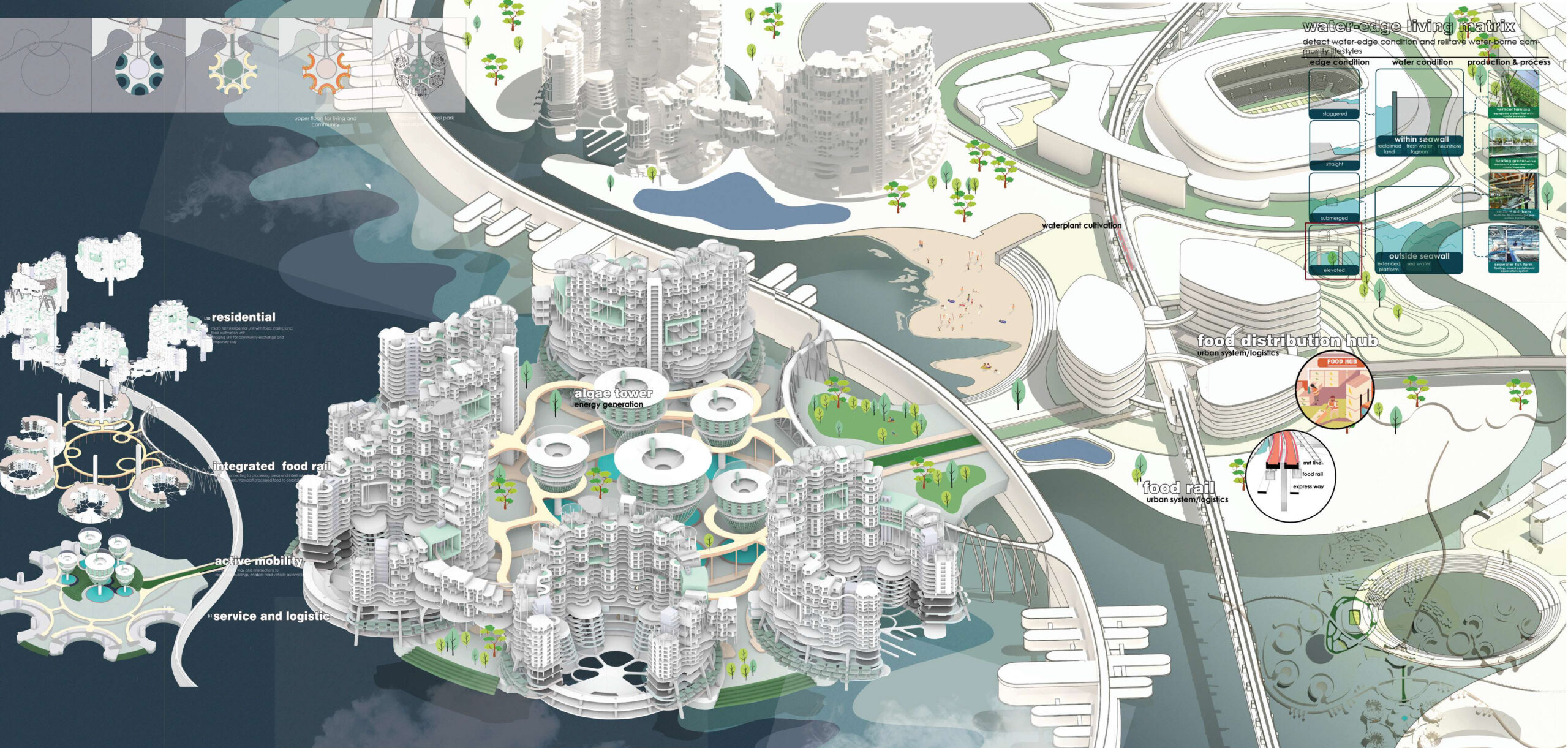
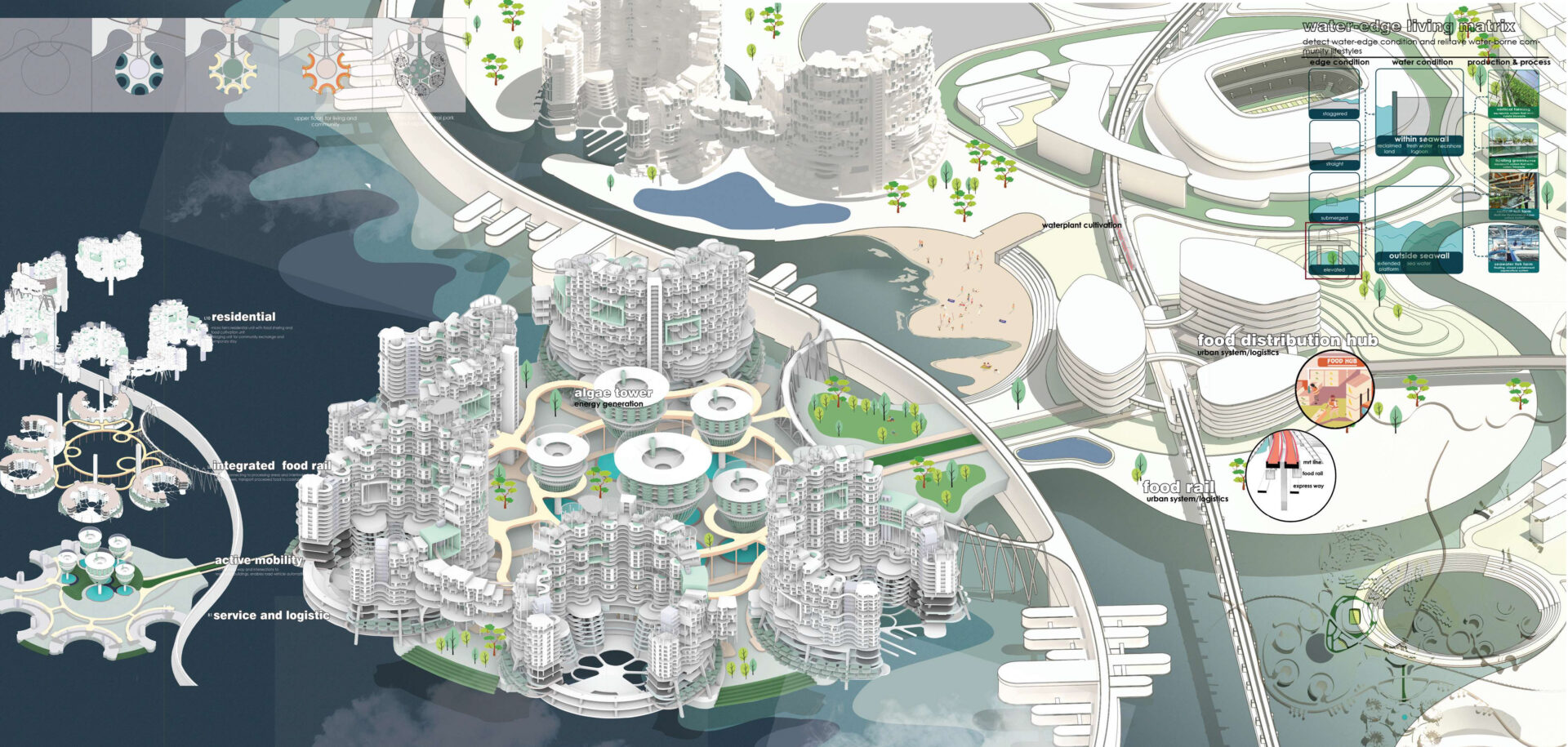
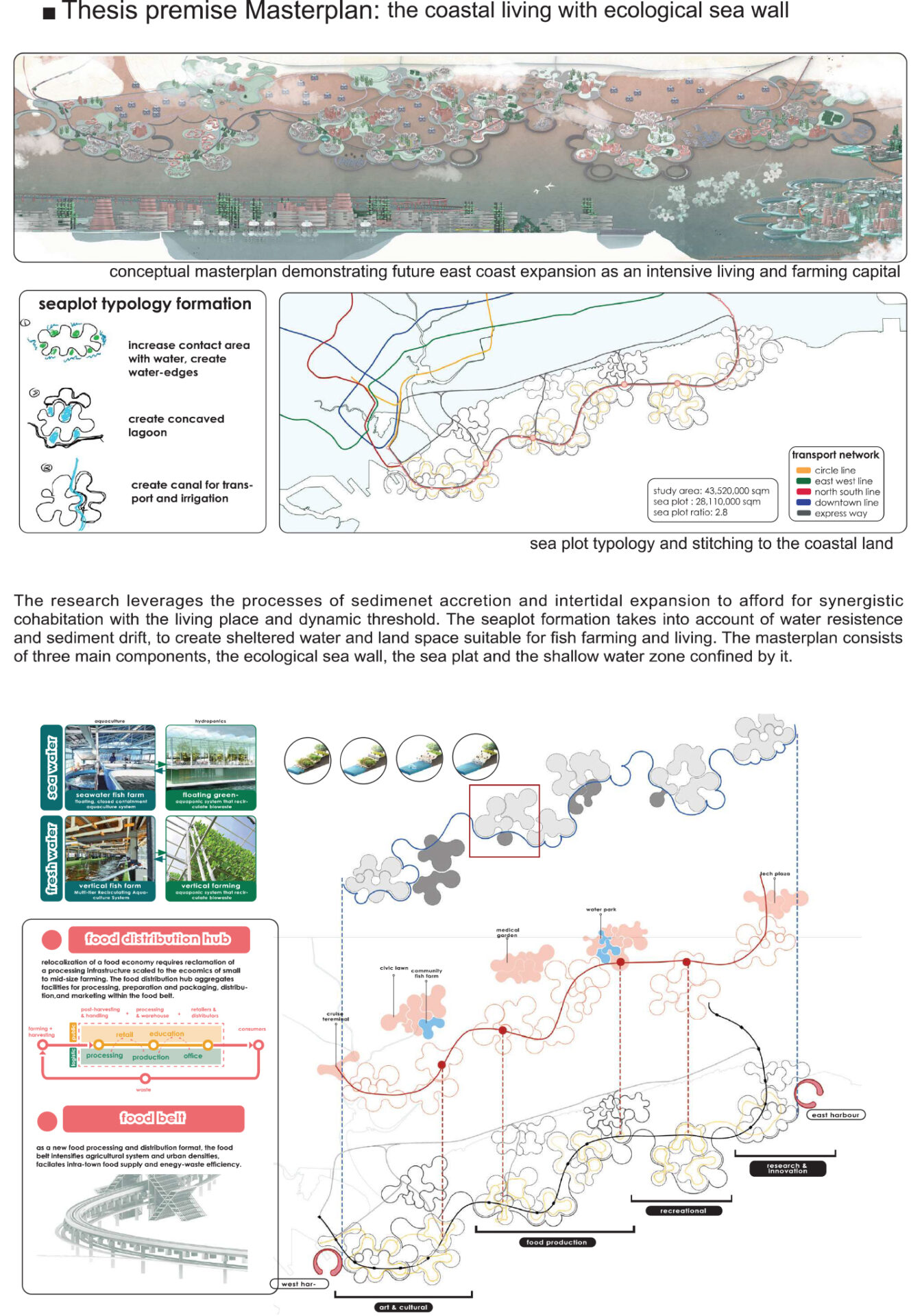
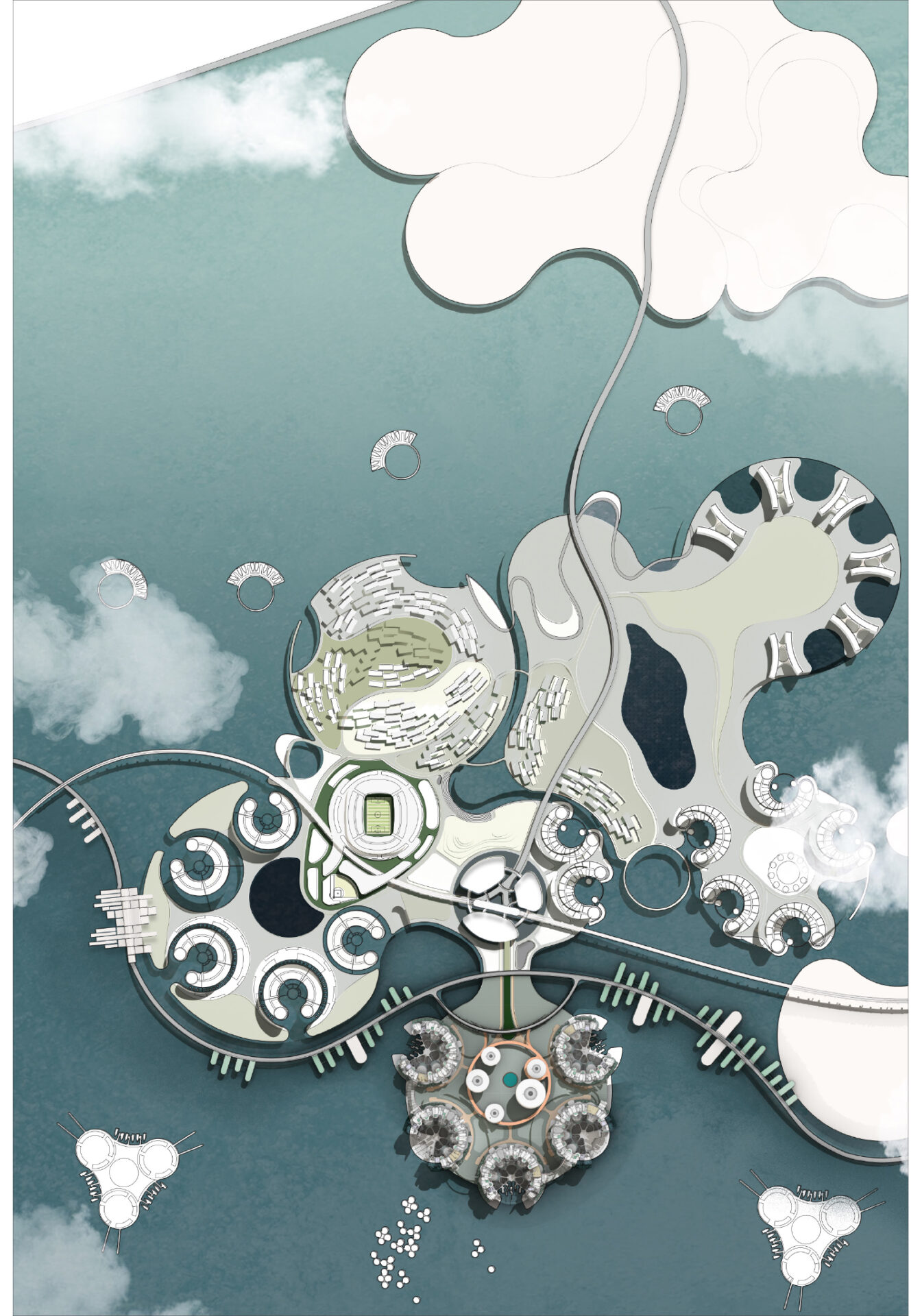
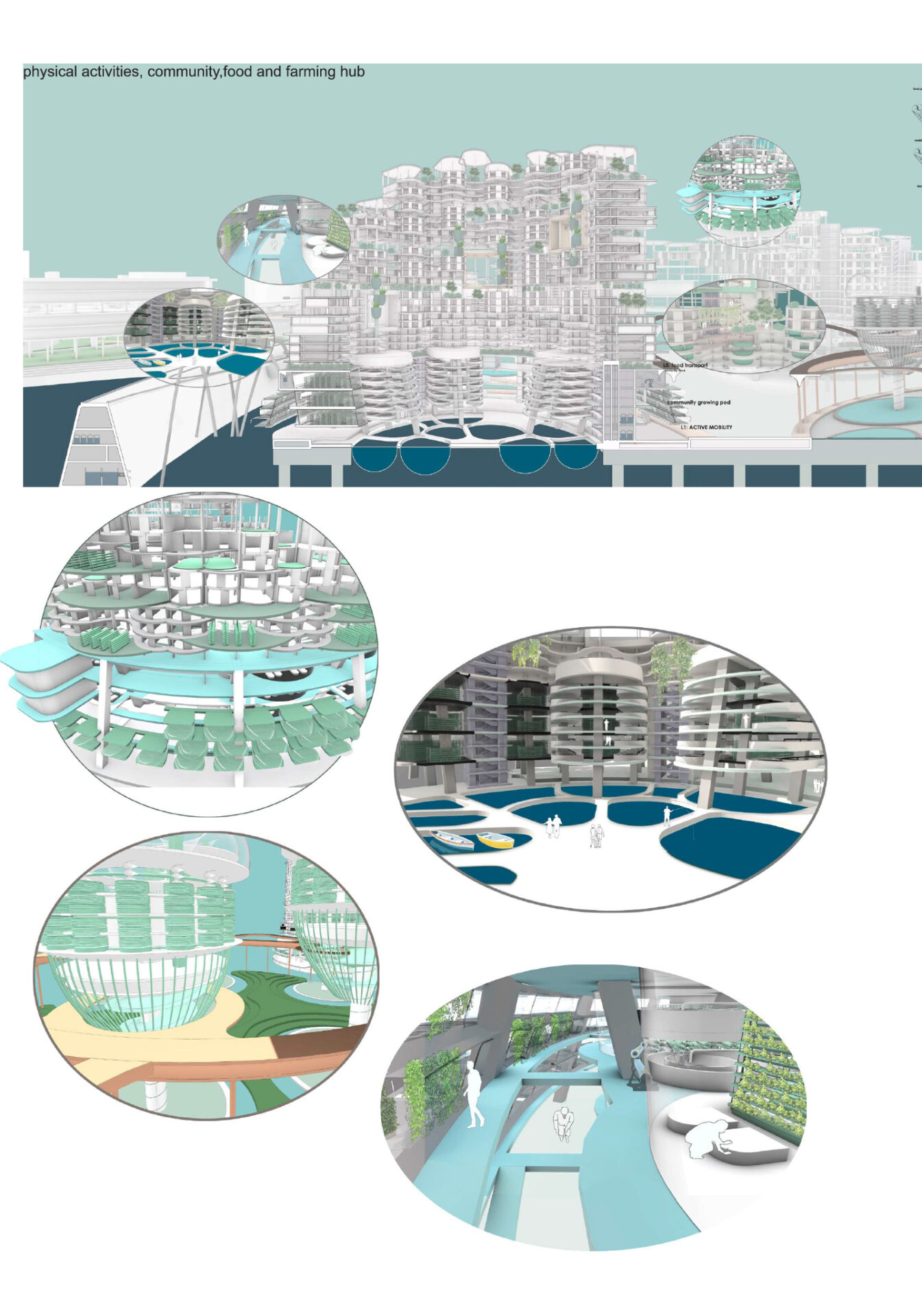
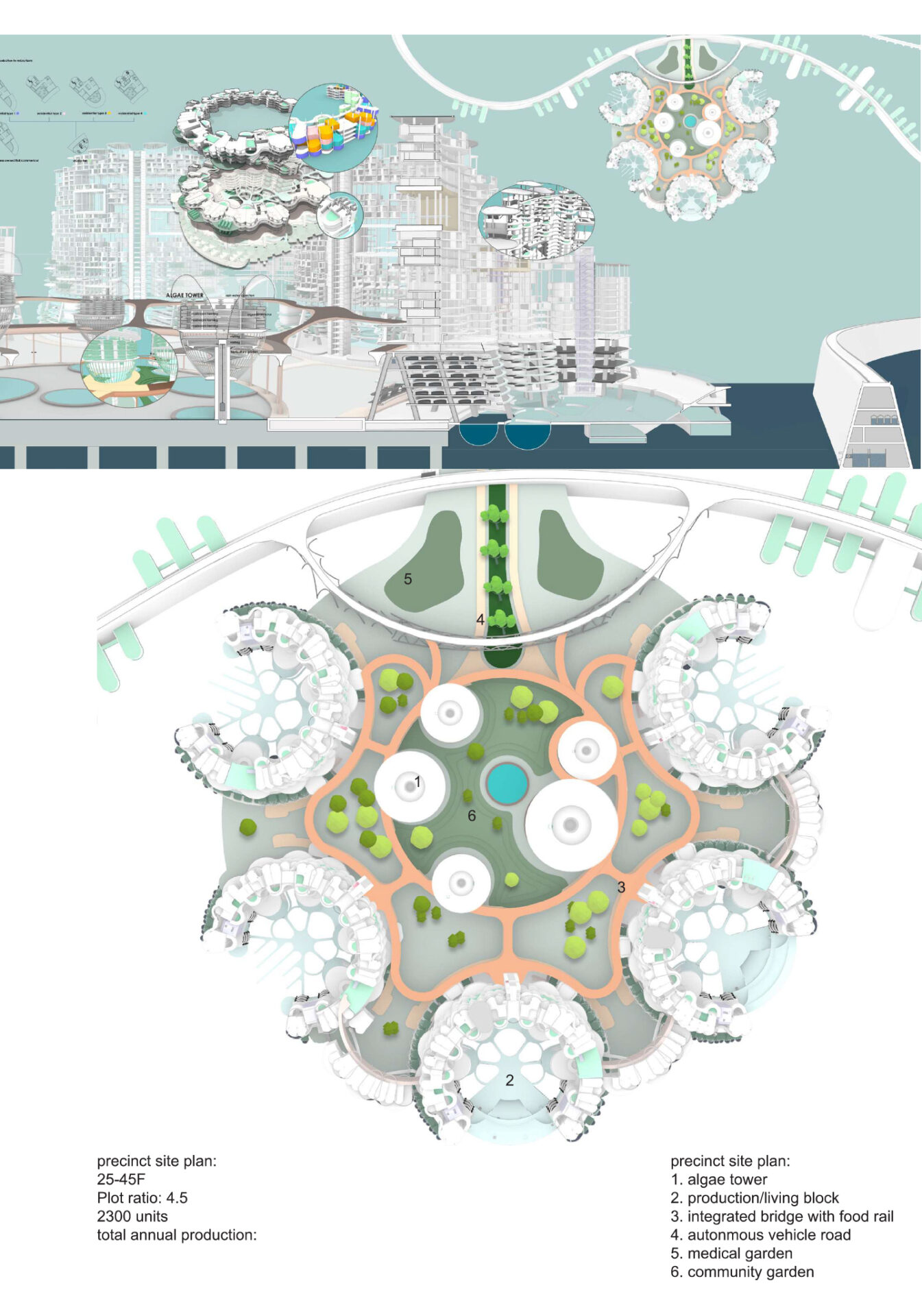
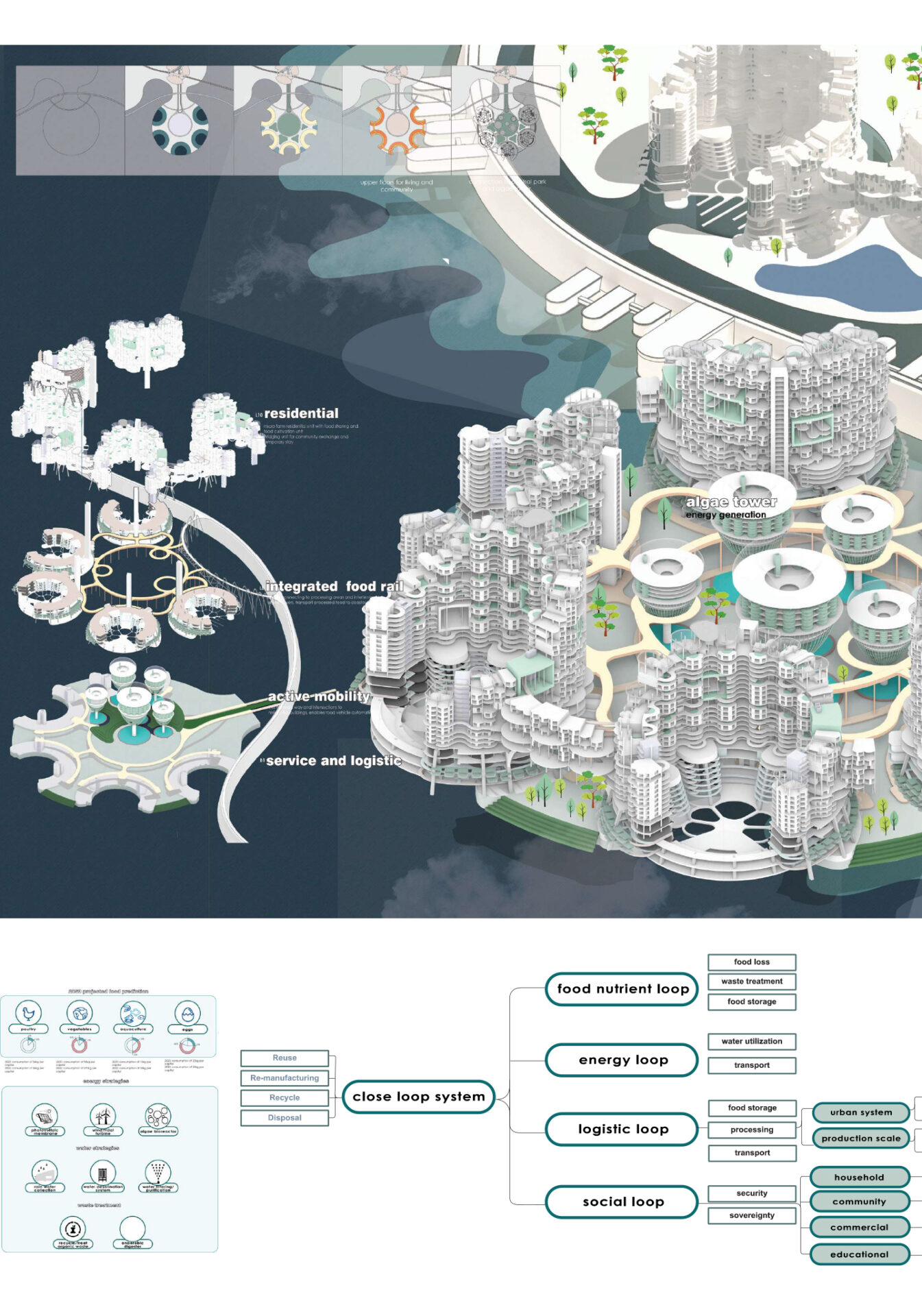
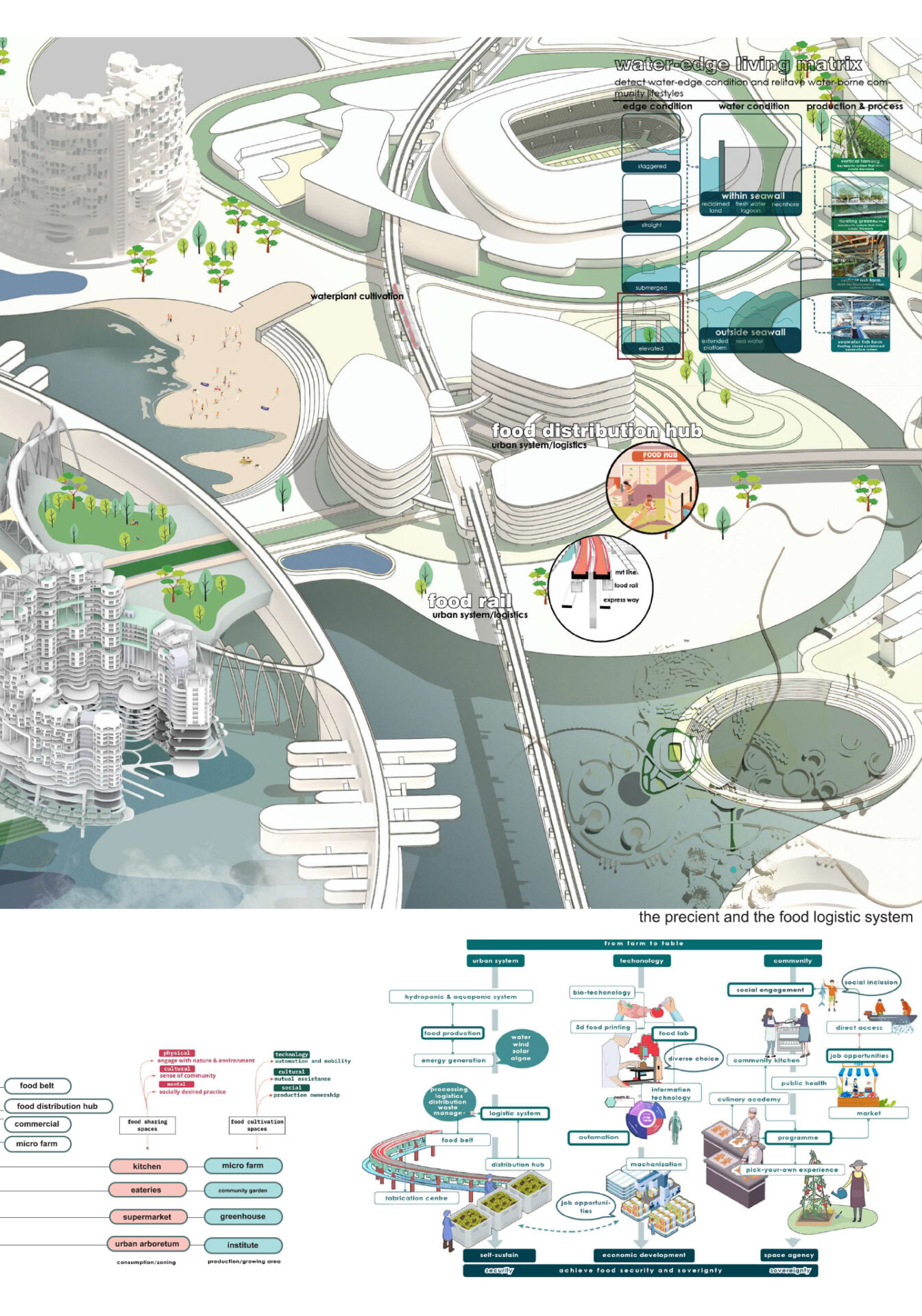
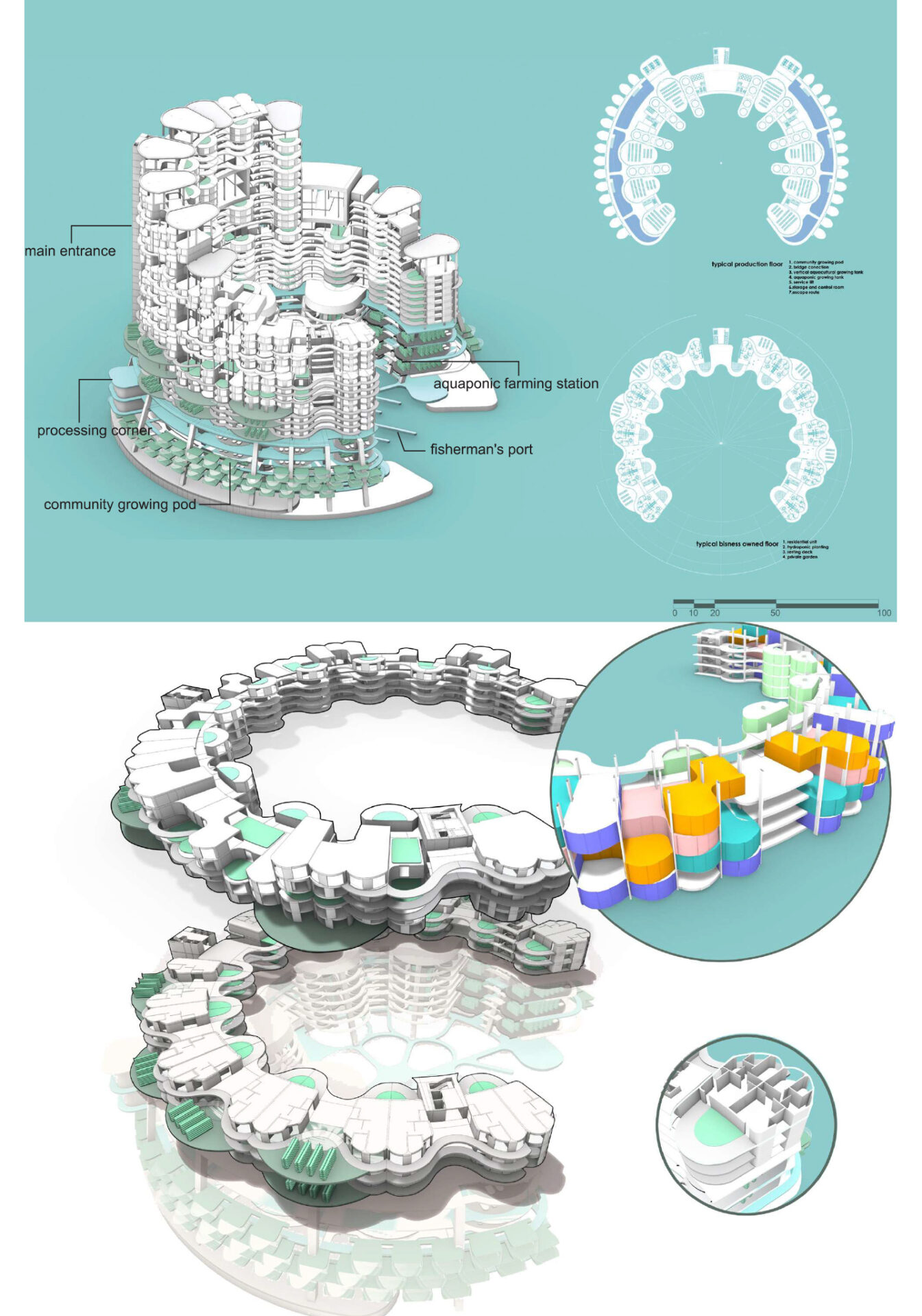
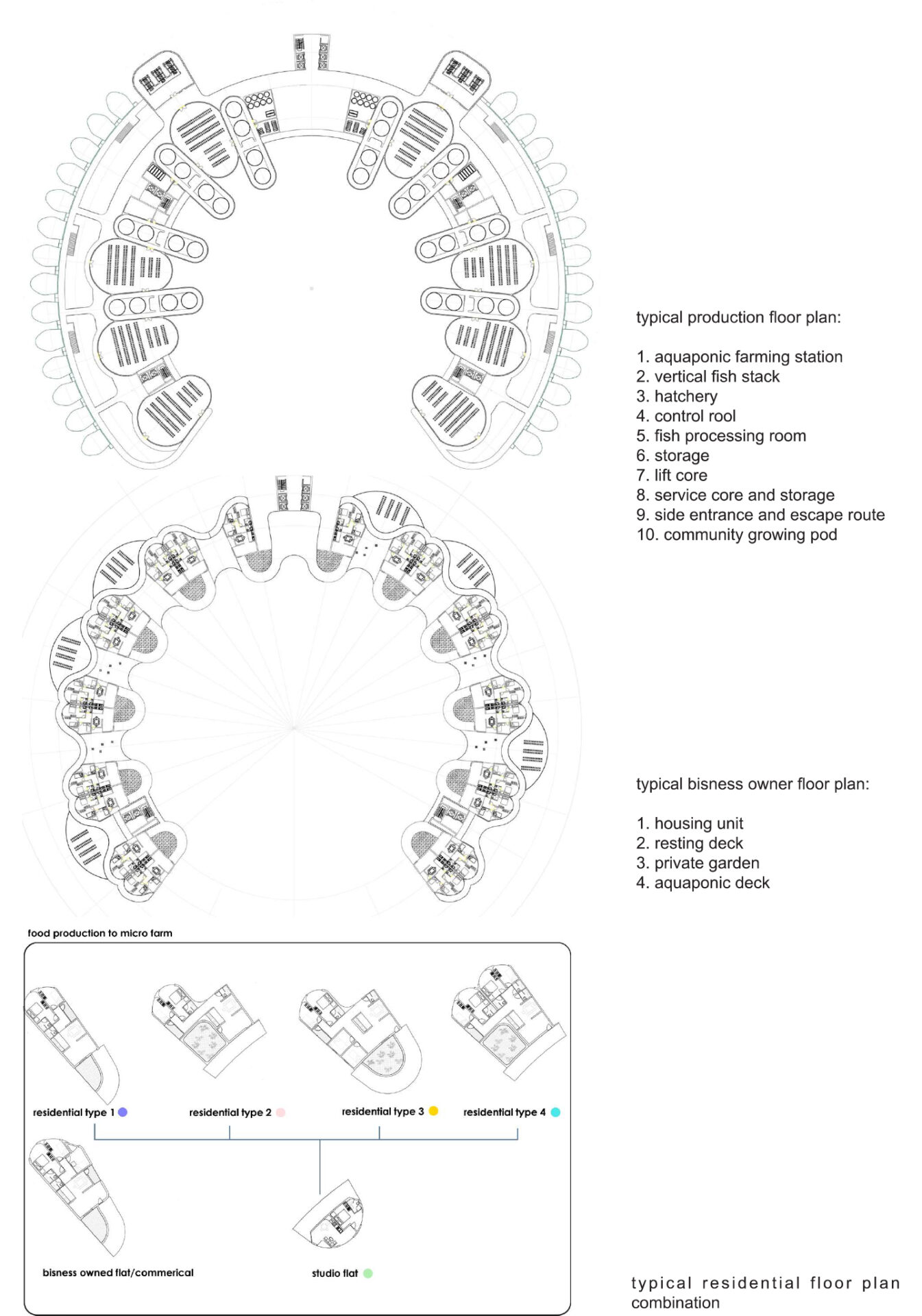
Supervisor's comments:
Ensuring human sustenance through food sufficiency is a wicked problem of this century as climate change, malpractice in factory farms, increasing consumption, and growing global population collectively make it extremely difficult to attain food security for a resource-limited city like Singapore. By imagining the future urban neighbourhood as a productive platform for seafood and urban farms, the project is a sophisticated interweaving of high-tech food production with a living community. The result is an exciting ensemble of curvilinear forms and organic spaces that elevates the potential of a novel sea-bound urban typology for resilient future communities.
- Assoc. Prof. Fung John Chye